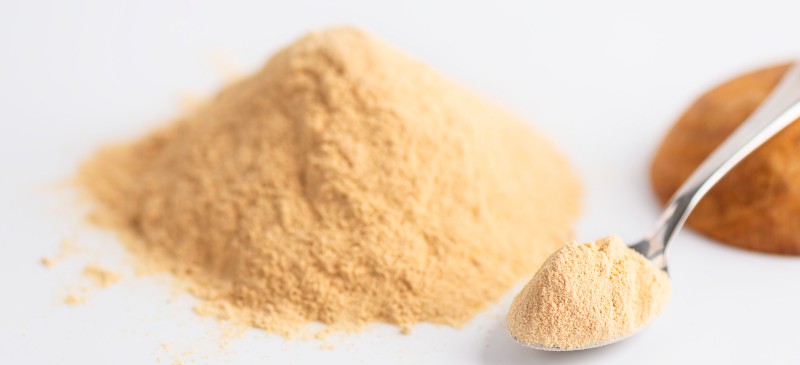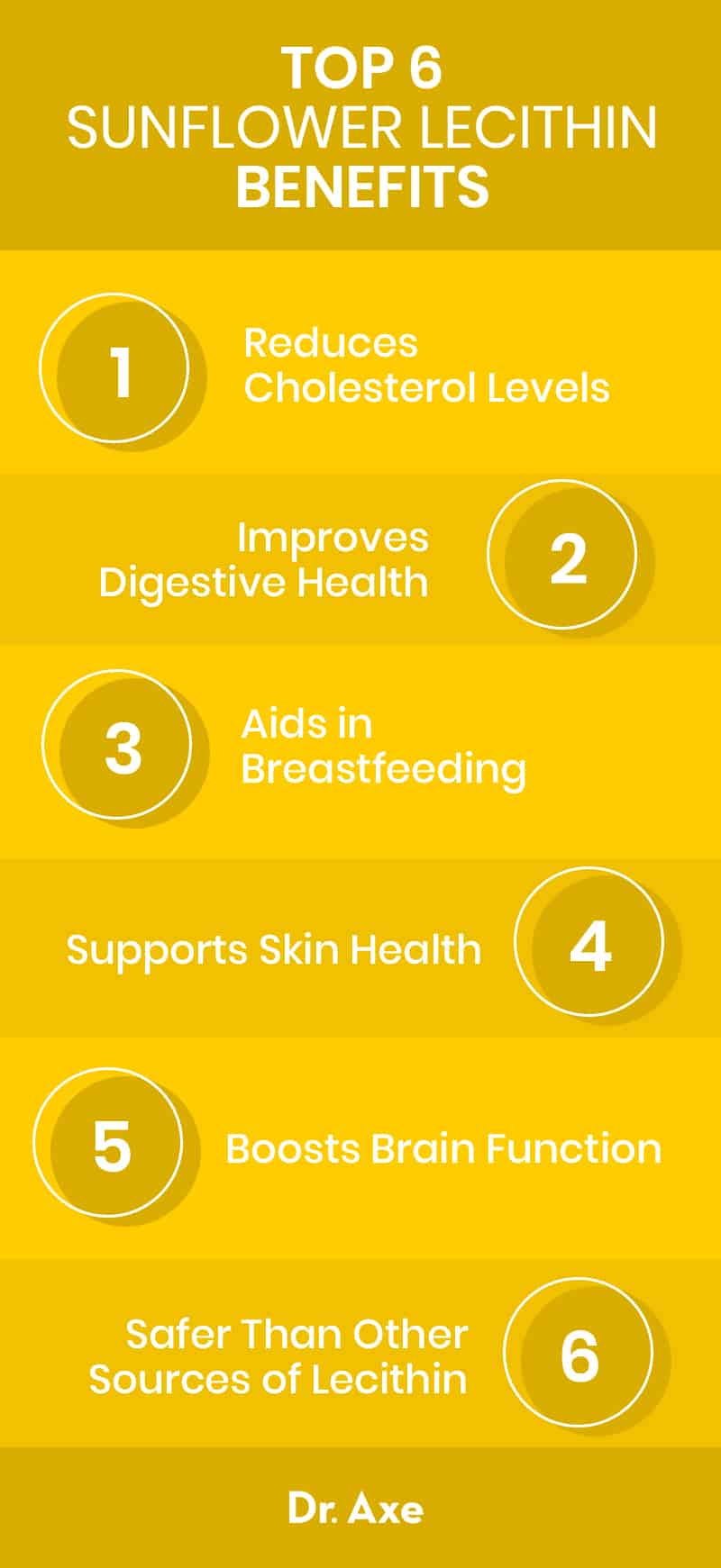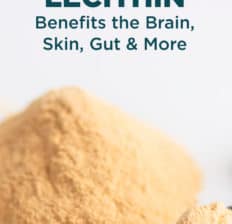This Dr. Axe content is medically reviewed or fact checked to ensure factually accurate information.
With strict editorial sourcing guidelines, we only link to academic research institutions, reputable media sites and, when research is available, medically peer-reviewed studies. Note that the numbers in parentheses (1, 2, etc.) are clickable links to these studies.
The information in our articles is NOT intended to replace a one-on-one relationship with a qualified health care professional and is not intended as medical advice.
This article is based on scientific evidence, written by experts and fact checked by our trained editorial staff. Note that the numbers in parentheses (1, 2, etc.) are clickable links to medically peer-reviewed studies.
Our team includes licensed nutritionists and dietitians, certified health education specialists, as well as certified strength and conditioning specialists, personal trainers and corrective exercise specialists. Our team aims to be not only thorough with its research, but also objective and unbiased.
The information in our articles is NOT intended to replace a one-on-one relationship with a qualified health care professional and is not intended as medical advice.
Sunflower Lecithin Benefits for the Brain, Skin, Gut & More
August 27, 2021

Flip over just about any of your favorite food or beauty products and there’s a pretty good chance you’ll spot soy, egg or sunflower lecithin on the ingredients label.
Commonly used as an emulsifier and emollient in both processed foods and cosmetics alike, sunflower lecithin has also begun gaining traction in the supplement world thanks to its powerful health-promoting properties.
Just a few of the potential sunflower lecithin benefits include:
- decreased cholesterol levels
- improved digestive health
- better brain function
- softer skin
- a reduced risk of breastfeeding complications
Additionally, sunflower lecithin may be a better option over other sources of lecithin because it’s GMO-free, plant-based and produced using more gentle extraction methods.
What Is Sunflower Lecithin?
Lecithin is a fatty substance that is found in your body as well as a multitude of plant and animal sources. Some of the most common types of lecithin include soybeans, egg yolks and sunflower lecithin. It’s also naturally found in foods like meat, seafood and dairy products.
Lecithin is an ingredient that’s added to certain foods as an emulsifier, helping stabilize mixtures and prevent different parts from separating.
It’s also available as a supplement and used to help lower cholesterol levels, aid in breastfeeding and support better brain function. It can be found in capsule, liquid or granule form for a simple and convenient way to bump up your daily intake.
Historical Uses:
Lecithin has actually been around for more than 100 years and has long been used in the food industry as a natural emulsifier.
Soy lecithin first appeared on the market in 1929 and was originally imported from Germany for several years until the American Lecithin Corp. began pioneering lecithin production in the United States.
Up until 1935, egg yolks were the leading source of lecithin but were then surpassed by soybeans, which remain the most common source used in lecithin production today.
Today, the uses of lecithin extend far beyond their potent medicinal properties. In sweets and confectionery, lecithin is used to improve shelf life, control the crystallization of sugar, improves thickness and help ingredients mix together more uniformly.
In other foods, it helps stabilize fermentation, enhances the texture of spreads, reduces spattering during high-heat cooking for fats like margarine and increases the volume of baked goods.
Sunflower Lecithin vs. Soy Lecithin vs. Egg Yolk Lecithin:
Lecithin is derived from several different sources, including sunflower seeds, soybeans and egg yolks. All three come with the same extensive range of health benefits, but there are several differences between them.
- Soy lecithin is the most common of the three types. However, it’s not always the best option because it’s produced from soybeans, which are often genetically modified. Additionally, soy is highly allergenic and considered one of the “Big 8” allergens, meaning it’s one of the most common sources of food allergies. While some research shows that highly refined oils like soy lecithin don’t contain enough soy protein to trigger an allergic reaction in most people, it’s still something that you may want to consider if you’re sensitive to soy.
- Egg yolk lecithin is another common source of lecithin. Much like soy lecithin, it’s not usually a concern for those who are allergic to eggs, but it’s not suitable for those following a vegan diet or looking to limit their consumption of animal products. Plus, like soy lecithin, it also requires the use of harsh chemicals during the extraction process.
Using a sunflower lecithin emulsifier or supplement is a great alternative to both egg and soy lecithin because it’s vegan, non-allergenic, non-GMO and requires gentler extraction methods without the use of harmful chemicals.
Health Benefits
Sunflower lecithin contains some vitamins and minerals that your body needs to function and thrive. In particular, it typically contains the following nutrients:
- Phosphorus
- Potassium
- Calcium
- Iron
- Choline
- Inositol
- Omega-3 fatty acids
- Omega-6 fatty acids
When taken with meals, sunflower lecithin may also aid in the absorption of several fat-soluble vitamins, such as vitamins A, D, E and K, ensuring that you’re able to meet your daily requirements for these key micronutrients.
Uses in Traditional Medicine:
Although sunflower lecithin is not commonly used in most forms of traditional medicine, sunflower seeds certainly are. Sunflower seeds are one of the best sources of lecithin and provide a wealth of other important nutrients and healthy fats.
On an Ayurvedic diet, sunflower seeds are thought to be very satisfying and nourishing. Like other types of nuts and seeds, they can be used to help pacify vata and may be beneficial for those with a pitta dosha as well.
Meanwhile, in Traditional Chinese Medicine, sunflower seeds are used to enhance digestion and support regularity. Not only that, but they are also believed to enhance skin health, prevent coughing and improve lung function as well.
Benefits:
What does sunflower lecithin do for you? Here’s more about potential sunflower lecithin benefits:
1. Reduces Cholesterol Levels
One of the most notable sunflower lecithin benefits for men and women alike is its positive effects on heart health and its ability to help lower cholesterol levels. Studies show that supplementing with lecithin can cut total cholesterol levels by up to 42 percent and slash levels of “bad” LDL cholesterol by over 56 percent after just two months.
Plus, some research suggests that lecithin can also cut disease risk by bumping up levels of beneficial HDL cholesterol, which can help keep the bloodstream clear by removing the buildup of fatty plaque from the arteries.
2. Improves Digestive Health
Sunflower lecithin may be especially beneficial for those with digestive conditions, such as ulcerative colitis, Crohn’s disease or irritable bowel syndrome. This is because about 70 percent of the total phospholipids in the intestinal mucus layer are made up of lecithin, helping form a protective barrier to prevent the invasion of harmful bacteria.
According to a study published in Digestive Diseases, the mucus content of this phospholipid barrier is decreased by about 70 percent in those with ulcerative colitis, potentially opening the door to dangerous microbes and increasing the risk of intestinal inflammation. Although research is still limited, this suggests that supplementation with sunflower lecithin may have a therapeutic effect on digestive health for those who suffer from these conditions.
3. Aids Breastfeeding
Clogged milk ducts are a common yet frustrating problem for women who breastfeed. Characterized by symptoms like redness, tenderness and swelling, clogged milk ducts can be painful and challenging to resolve.
Worst of all, clogged ducts can potentially lead to mastitis if proper precautions aren’t taken.
Many experts recommend sunflower lecithin for women who experience recurrent, painful blocked milk ducts. While proper care is absolutely essential to help treat a current clogged duct, lecithin can help reduce the viscosity of breast milk, making it less likely to happen again in the future.
4. Supports Skin Health
Flip over just about any of your favorite skin care products and you may just spot some form of lecithin on the list of ingredients. Lecithin is especially effective at relieving irritated and dry skin. It also has emollient properties that can keep skin feeling soft.
When combined with a range of other skin-soothing ingredients and applied topically, lecithin has been shown to aid in the treatment of conditions like eczema and atopic dermatitis. However, more research is needed to determine how lecithin in supplement form may impact overall skin health.
5. Boosts Brain Function
Sunflower lecithin is a great source of choline, an essential nutrient that is necessary for several different aspects of health. Choline is especially important when it comes to brain health because it’s the precursor to acetylcholine, a neurotransmitter involved in learning and memory.
Interestingly enough, one study published in the American Journal of Clinical Nutrition actually found that a higher intake of choline was linked to improved cognitive function. Another study conducted by the Clinical Research Center at the Massachusetts Institute of Technology showed that choline supplementation helped improve memory function in older adults with poor memory.
Natural lecithin is also rich in various fatty acids that have been shown to support nervous system function and structure, including by enhancing neuronal development, according to one animal study.
6. Safer Than Other Sources of Lecithin
Compared to other forms of lecithin derived from soy or corn, sunflower lecithin is your best bet if you’re looking to minimize your intake of ingredients that have been genetically modified. This is because, unlike other sources of lecithin, sunflower seeds are never genetically modified.
Sunflower seeds may also be preferable over other types of lecithin because the extraction process doesn’t require the use of harsh and potentially harmful chemicals, unlike lecithin produced from soy or egg yolks.

Supplements and Dosage
Sunflower lecithin is widely available in supplement form. It can be found as capsules as well as sunflower lecithin liquid extract, powder and even lecithin granules.
In most cases, you should be able to find it at your local pharmacy or health food store, but it’s also available online if you have difficulty finding it near you.
Is it OK to take sunflower lecithin every day? Although there is no official recommended dosage, most manufacturers recommend taking about 1–1.5 tablespoons of sunflower lecithin powder, granules or liquid daily.
Meanwhile, in capsule form, 2,400 milligrams per day is generally recommended, which can be split into several doses and taken with meals.
Keep in mind that dosage can vary based on a number of factors, such as age, gender, body weight and specific health concerns.
Additionally, note that supplementation should not exceed 5,000 milligrams daily. More than that may increase the risk of side effects like diarrhea, abdominal pain, nausea and bloating.
Related: What Is Phosphatidylcholine? Benefits, Uses, Forms & Side Effects
Risks and Side Effects
Lecithin is found naturally in many of the foods you already eat, such as dairy products, margarine, ice cream and more. In these foods, sunflower lecithin is generally safe and can be consumed with minimal risk of side effects.
Why might lecithin be bad for you? There are very few health risks associated with this ingredient, but usage may be associated with several sunflower lecithin side effects when consumed in high amounts.
What are the side effects of sunflower lecithin? The most common adverse symptoms associated with it include diarrhea, abdominal pain, nausea and bloating. If you experience these or any other side effects, consider decreasing your dosage or consulting with your doctor if symptoms persist.
If taking a lecithin supplement, opt for sunflower lecithin whenever possible. Not only is it the only guaranteed non-GMO source of lecithin, but it’s also produced using more gentle extraction methods that don’t require the use of harsh and potentially dangerous chemicals.
Conclusion
- What is sunflower lecithin? It’s an ingredient that’s added to certain foods as an emulsifier, helping to stabilize mixtures and prevent different parts from separating. Lecithin itself is also a type of fatty substance naturally found in the human body and some foods, like eggs and soybeans.
- Sunflower lecithin contains some vitamins and minerals that your body needs, such as potassium, phosphorus and fatty acids. It can help with absorption of choline and fat-soluble vitamins and also offers other health perks, like assisting in cholesterol balance, digestion and breastfeeding for nursing moms.
- It’s not only found in some foods, but also widely available in supplement form. It can be found as capsules as well as sunflower lecithin liquid extract, powder and even lecithin granules that are taken for heart and cognitive support.











